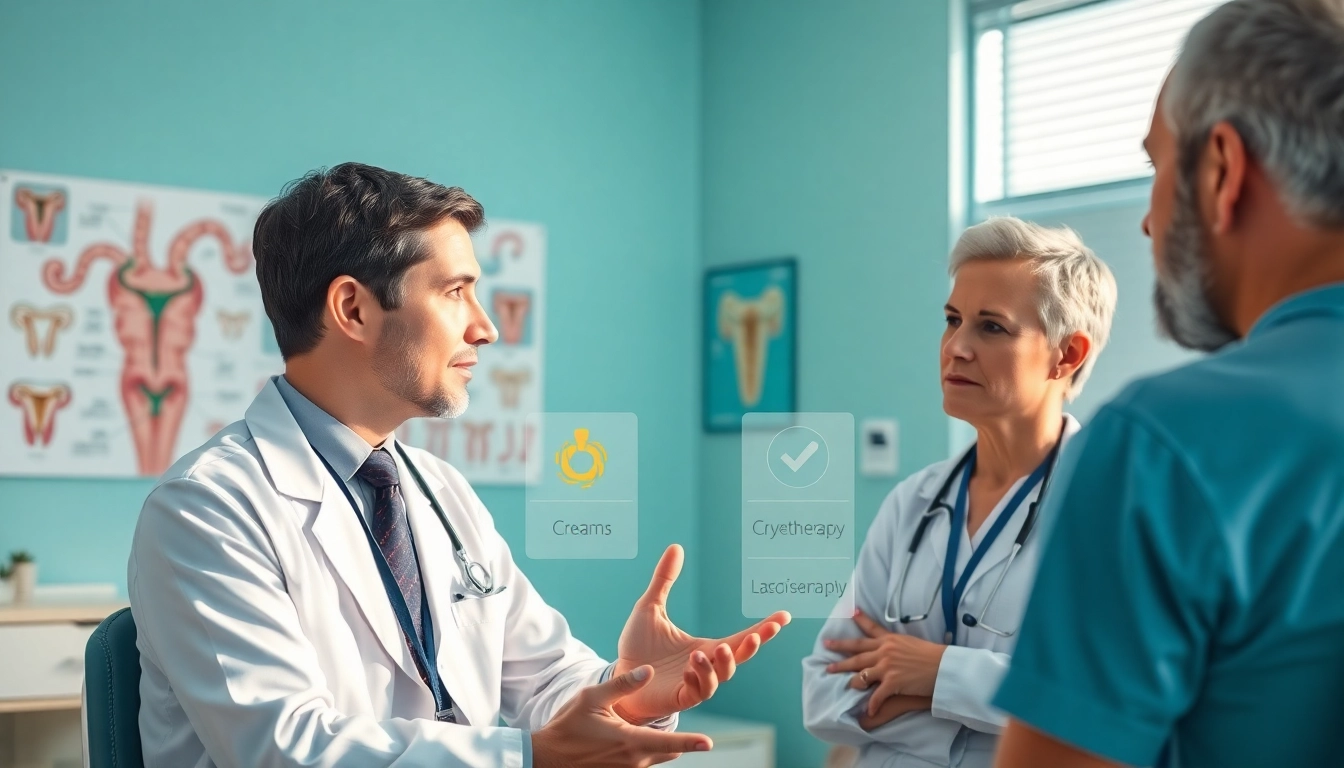Understanding Genital Warts and Their Causes
What Are Genital Warts?
Genital warts are small, soft growths that appear on the genital area, caused by certain strains of the human papillomavirus (HPV). They may be flesh-colored or slightly darker and can vary in size, often appearing as single warts or clusters resembling a cauliflower. Though they are non-cancerous, genital warts can be bothersome and can lead to psychological stress for affected individuals.
How is HPV Transmitted?
HPV is primarily spread through direct skin-to-skin contact during sexual activity. This includes vaginal, anal, and oral sex with an infected partner. Importantly, genital warts can be contracted even when an infected individual does not show visible symptoms. It’s vital to understand that HPV is a highly prevalent virus, and many sexually active individuals will be exposed to it at some point in their lives.
Common Symptoms of Genital Warts
Many individuals with genital warts may not experience any symptoms, making it difficult to identify the infection. However, when symptoms do occur, they can include:
- Small, flesh-colored bumps in the genital region
- Clusters of warts that resemble a cauliflower
- Itching or discomfort in the genital area
- Bleeding during sexual activity
If you experience these symptoms, it is advisable to consult a healthcare provider for an accurate diagnosis and discussion of potential Genital warts cure options.
Treatment Options for Genital Warts
Topical Treatments and Creams
Topical treatments are often the first line of defense against genital warts. Over-the-counter creams and prescription treatments include:
- Podophyllin and Podofilox: These are plant-based treatments that help in eliminating warts but must be applied carefully to avoid damaging surrounding skin.
- Imiquimod: This cream stimulates the immune system to fight the HPV and is applied directly to the warts.
- Trichloroacetic acid (TCA): A stronger acid that a healthcare professional applies to remove warts.
While these topical treatments can effectively flatten warts, they do not eradicate the underlying virus, highlighting the necessity for ongoing monitoring and potential further treatment.
Procedures for Removal
When topical treatments are ineffective or if the warts are extensive, procedures for physically removing the warts may be recommended, including:
- Cryotherapy: Freezing the warts with liquid nitrogen.
- Electrosurgery: Using electrical currents to cut away warts.
- Laser therapy: A procedure that destroys warts through focused light.
Here, it’s crucial to note that while these methods can eliminate visible warts, they do not cure the infection itself, as HPV remains dormant in the body.
When to Seek Medical Help
It is essential to seek medical advice if you notice unusual growths in the genital area, experience pain or discomfort, or if warts do not respond to initial treatments. Professional guidance can help manage symptoms effectively and provide tailored options aligned with each individual’s health profile.
Prevention Strategies for Genital Warts
Vaccination and Its Importance
One of the most effective measures for preventing genital warts is vaccination against HPV, specifically the Gardasil vaccine. This vaccine protects against the most common strains of HPV responsible for genital warts and some cancers. It is usually recommended for preteens but can be given to individuals up to 45 years old.
Safe Sexual Practices
Limiting sexual partners and practicing safe sex can significantly reduce the risk of HPV transmission. Key measures include:
- Using condoms consistently and correctly during sexual activity
- Avoiding sexual activity if you or your partner have visible genital warts
- Communicating openly with partners about sexual health history
These practices not only help in preventing the spread of genital warts but also enhance overall sexual health and well-being.
Regular Health Check-ups
Routine health check-ups can help detect HPV and its associated conditions early. Regular screenings, particularly for women through Pap tests and HPV tests, can identify precancerous changes in cervical tissue caused by certain HPV strains.
Living with Genital Warts
Emotional and Psychological Support
Receiving a diagnosis of genital warts can lead to feelings of shame, anxiety, and frustration. It’s important to acknowledge these feelings and seek emotional support when needed. Talking with a therapist or joining support groups can foster healing and provide valuable coping mechanisms.
Impact on Relationships and Intimacy
Genital warts can influence intimate relationships due to fear of transmission or personal embarrassment. Open and honest communication with partners is critical. Discussing personal health openly can promote understanding and strengthen the relationship, mitigating fear and uncertainty.
Recognizing Signs of Recurrence
After treatment, some individuals may experience recurrence of genital warts. Being vigilant about changes in the genital area will help in identifying new growths early. Engaging in proactive health check-ups with a healthcare provider can facilitate early intervention if recurrence occurs.
Future Research and Trends in Genital Warts Management
Innovative Treatments on the Horizon
Research into more effective treatments for genital warts continues to evolve. New antiviral therapies targeting HPV directly may revolutionize the way infections are managed and potentially lead to a complete Genital warts cure.
Role of Education and Awareness
Education plays a fundamental role in the prevention and management of genital warts. Increased awareness of HPV transmission, potential health implications, and available treatment options can empower individuals to make informed choices about their sexual health.
Community Support Initiatives
Community programs aimed at educating the public about HPV and its effects can also aid in reducing stigma associated with genital warts. Initiatives that promote healthy discussions around sexual health contribute to a more informed population, ultimately driving better health outcomes.



